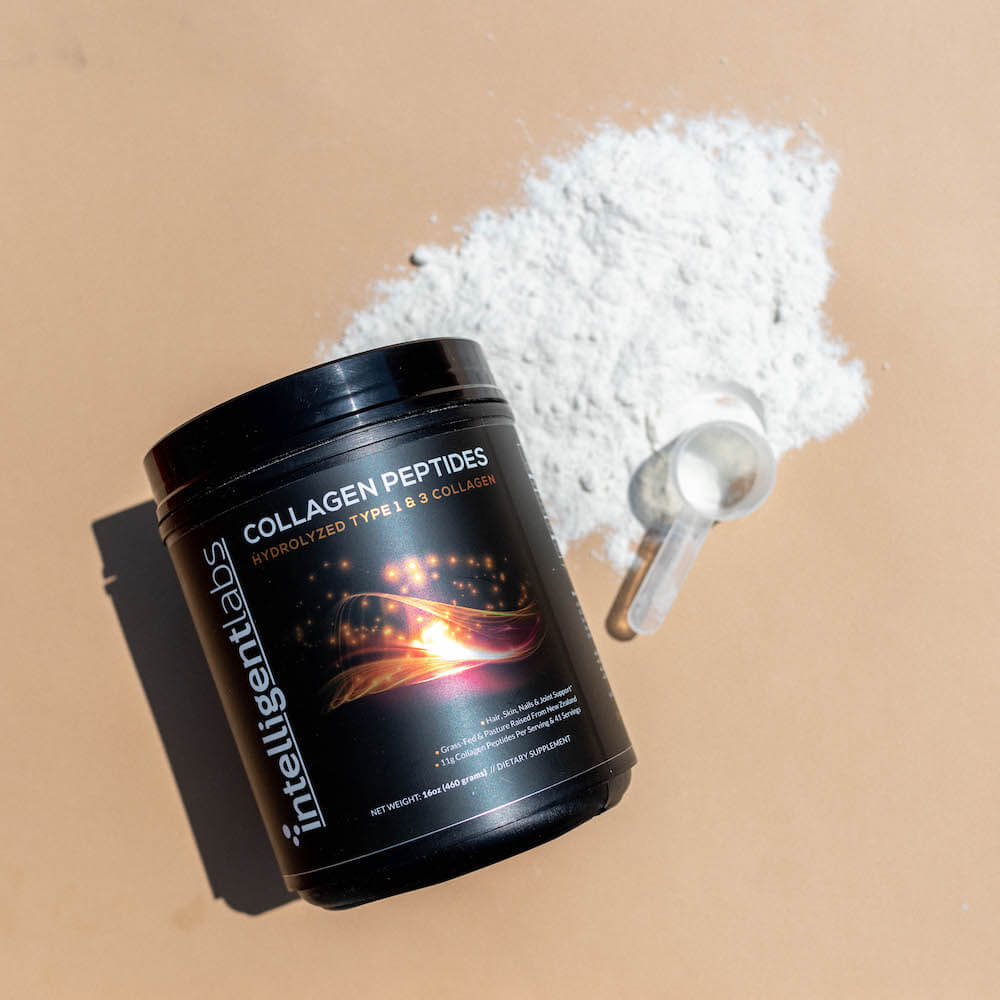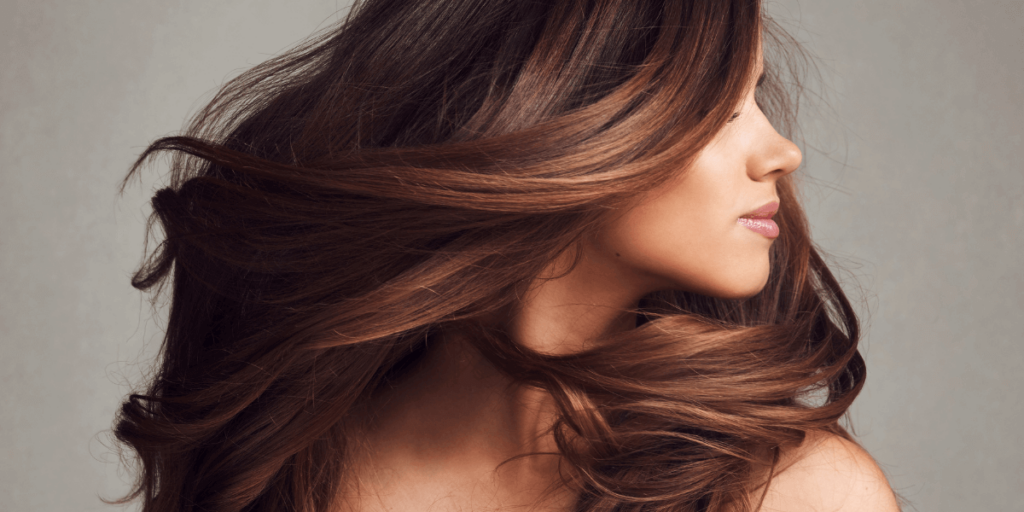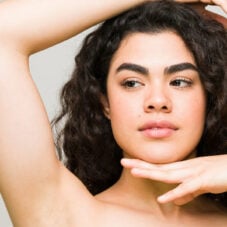For many people, their hair is their crowning glory. A full head of shiny, healthy hair can boost morale and confidence. But aside from the beauty points, hair offers protection, insulation, and sensory stimulation. Can Collagen, a well-known beauty supplement, help with hair growth and hair health? If so, how much collagen should you take daily? Let’s find out in this blog post!
Table of Contents
What is hair made of?
Human hair is primarily made up of a structural protein called keratin. It gives hair its structure and toughness (1). Keratin is why human hair takes a long time to decompose, taking up to several years!
Keratin is similar to collagen in that they are both proteins. Though they differ in composition, both keratin and collagen are made of essentially the same thing – amino acids. For keratin, the main amino acid is proline (2).
If hair isn’t made up of collagen, then how can it help with hair growth?
While collagen isn’t a component of hair, it is made up of amino acids. Collagen contains several amino acids, with the big 3 being glycine, proline (keratin’s main component), and hydroxyproline (3).
When you consume collagen, either in food form or supplement form like our Collagen Peptides powder, it is broken down into amino acid components. The body will then use the specific amino acids to build new proteins, including keratin.
This is where a collagen product’s amino acid profile comes in handy. You can easily examine the proline content by checking the product label.
A typical scoop of our Collagen Peptides contains a hefty 1,150mg of proline, as well as 16 other amino acids. These individual amino acids in collagen do the heavy lifting to support hair growth, amongst many other health benefits (4)!

Can collagen help with hair thinning?
Skin aging contributes to hair loss and hair thinning. The hair follicles shrink, replacing thick healthy strands with thin wisps. While aging is inevitable, supplementing with collagen may help slow it down.
In one study, women aged 35-55 took either 2.5g or 5g of collagen daily for 8 weeks. Both groups showed significant improvements in skin elasticity and positive changes in skin moisture and evaporation (5). This suggests that collagen may help the skin remain in good shape, thus supporting the hair follicle’s production of thick and healthy strands.
Can collagen help with hair growth?
The hair follicles regulate hair growth. Keeping them nourished is a must. Otherwise, they become thin and damaged until they eventually die and permanently stop producing hair.
Fortunately, collagen may be effective at keeping hair follicles healthy. An animal study showed that collagen may increase hair growth factors while decreasing the growth inhibitory factor. This only means that collagen may promote hair regrowth and prevent hair loss, too (6).
This news is very promising for men and women who dread losing their hair to pattern baldness. But it’s hard to fight genetics and avoid one’s predetermined fate. While taking collagen may help with hair growth, it’s not a miracle supplement by any means. The earlier you can get started on a collagen routine, the more effective it may be at supporting your hair follicles’ health.
Can collagen help strengthen hair and reduce hair breakage?
Free radical damage and oxidative stress can damage the hair, making it weak and prone to breakage.
Examples of oxidative stressors include the sun’s UV rays, harsh chemicals in hair products, smoking, and various pollutants (7).
Taking collagen for hair may help fight the effects of oxidative damage. In addition to keeping hair follicles healthy, the amino acids in collagen (especially proline) also help boost keratin production, thus strengthening individual hair strands and reducing hair breakage!
Can collagen help with gray hair?
Everyone’s going to go gray at some point. Genetics, stress, pollution, and many other factors can speed up the aging process – and gray hair, too.
For premature graying caused by oxidative stress, collagen may be able to help. Collagen’s antioxidant properties may help neutralize free radicals; thus, it may contribute to slowing down the appearance of gray hair (8).
What’s the best type of collagen for hair?
To answer this question, let’s first find out what type of collagen is actually present in the skin’s dermis layer.
So, hair roots are embedded in the deeper layers of the skin, specifically in the dermis. Types I and III collagen are found in large numbers in the dermis (9). These are also the same types of collagen present in our Collagen Peptides powder! Our collagen powder is hydrolyzed, so the body more easily absorbs it, which may help you see much faster results.
How much collagen per day for hair growth?
While there is no standard recommended collagen intake, most studies have used a daily dosage of 2.5g to 15g daily. This range has yielded positive benefits while keeping side effects to a minimum, if at all.
That said, a single scoop of our Collagen Peptides will give you 11g of Types I and III collagen, well within the dosage range used in many studies!
For best results, we recommend taking collagen with vitamin C. Vitamin C is a co-factor in collagen formation, meaning the body cannot produce collagen if there’s not enough vitamin C.
Related article: How Much Collagen To Take For Best Results?
Final thoughts
The research done so far on collagen’s benefits for hair is exciting and very promising. Taking a scoop of our Collagen Peptides powder daily may help you see improvements not just in your hair, but also in your skin, muscles, bones, gums, and more. After all, collagen is essential to our very existence, so taking high-quality collagen supplements may benefit your health in more ways than one!
💬 Something on your mind? Share your thoughts in the comments. We love hearing from curious minds.
📩 And while you’re here, join our newsletter for more smart stuff (and secret perks)!
References
(1) Yang FC, Zhang Y, Rheinstädter MC. The structure of people’s hair. PeerJ. 2014 Oct 14;2:e619. doi: 10.7717/peerj.619. PMID: 25332846; PMCID: PMC4201279.
(2) Strnad P, Usachov V, Debes C, Gräter F, Parry DA, Omary MB. Unique amino acid signatures that are evolutionarily conserved distinguish simple-type, epidermal and hair keratins. J Cell Sci. 2011 Dec 15;124(Pt 24):4221-32. doi: 10.1242/jcs.089516. Epub 2012 Jan 3. PMID: 22215855; PMCID: PMC3258107.
(3) Shoulders MD, Raines RT. Collagen structure and stability. Annu Rev Biochem. 2009;78:929-58. doi: 10.1146/annurev.biochem.77.032207.120833. PMID: 19344236; PMCID: PMC2846778.
(4) Wu G. Amino acids: metabolism, functions, and nutrition. Amino Acids. 2009;37(1):1-17. doi:10.1007/s00726-009-0269-0
(5) Proksch E, Segger D, Degwert J, Schunck M, Zague V, Oesser S. Oral supplementation of specific collagen peptides has beneficial effects on human skin physiology: a double-blind, placebo-controlled study. Skin Pharmacol Physiol. 2014;27(1):47-55. doi:10.1159/000351376
(6) Hwang SB, Park HJ, Lee BH. Hair-Growth-Promoting Effects of the Fish Collagen Peptide in Human Dermal Papilla Cells and C57BL/6 Mice Modulating Wnt/β-Catenin and BMP Signaling Pathways. Int J Mol Sci. 2022;23(19):11904. Published 2022 Oct 7. doi:10.3390/ijms231911904
(7) The impact of oxidative stress on hair, R. M. Trüeb, First published: 17 November 2015
(8) Aguirre-Cruz G, León-López A, Cruz-Gómez V, Jiménez-Alvarado R, Aguirre-Álvarez G. Collagen Hydrolysates for Skin Protection: Oral Administration and Topical Formulation. Antioxidants. 2020; 9(2):181.
(9) Brown TM, Krishnamurthy K. Histology, Dermis. [Updated 2022 Nov 14]. In: StatPearls [Internet]. Treasure Island (FL): StatPearls Publishing; 2023 Jan-.




